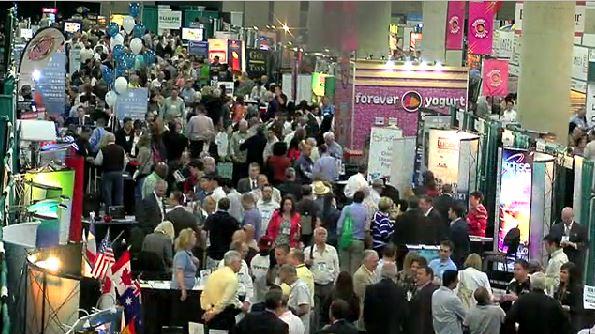ANAHEIM—Anaheim Convention Center was teeming with entrepreneurs Oct. 23 through 25 as the West Coast Franchise Expo sought to connect national and international franchises with like-minded business professionals.
AAMCO Transmissions, Inc., Dunkin' Donuts, and Baskin Robbins were present along with less well known franchises like Louisiana-based Smoothie King and Instant Imprints, based in Ontario, Canada, which offers comprehensive marketing services from shirt embroidery to car wraps.
Collectively, franchises contribute significantly to the U.S. economy by providing, directly and indirectly, 18 million jobs, according to a study published in 2004 by PriceWaterhouseCoopers.
The International Franchise Association, which was established in 1960 to support the healthy growth of franchises during a period of franchise influx, claims there are 825,000 franchises which contribute $2.1 trillion in economic output in the United States.
Becoming a Franchisee
What is a franchisee and what does it take to buy a franchise? A franchisee is one or more people who are granted the right by a franchisor to market a product or service with an established trademark.
There are thousands of franchises in dozens of industries. Fast food, restaurants, auto, and retail are among the most common industries where franchises such as McDonald’s, Outback Steakhouse, AAMCO, and Athlete’s Foot thrive.
An initial franchise fee, which could range from $10,000 to $100,000, along with ongoing royalty and advertising fees, are required to become a franchisee.
To own a Papa John’s restaurant, for example, requires a minimum net worth of $250,000, an initial franchise fee of $25,000, along with monthly royalty and advertising fees of 5 percent and 7 percent of net sales, respectively.
Financing is available, and a popular vehicle used to create the capital needed is your own retirement funds.
Diane Rosenkrantz, a senior consultant from Tenet Financial Group, helps finance franchises by specializing in the Rollover funding option, whereby retirement funds such as 401K, IRA, pensions, 403b, 457, and annuities can be used to finance the purchase of a franchise.
While manning her booth at the Expo with a smile, information brochures, and years of experiential knowledge, she explained the benefits of exercising the Rollover funding option.
“You can buy a franchise with the help of your 401K and still be debt free. There’s no loan. You’re simply investing your 401K,” she said.
If you want to invest in a franchise, green is not the only currency, however—fitting in to the brand is a major qualifier.
Gregory Cook from the International Franchise Association was manning IFA’s booth at the West Coast Franchise Expo. He clarified that people don’t necessarily buy franchises—they are awarded based on an investor’s qualifications. In additional to meeting financial requirements, potential franchisees need to “fit the culture of the brand,” he said.
Christian Collucci, vice president and chief operating officer of Instant Imprints had a similar prescription for investors looking to become franchisees. “We’re looking for people with the right attitude. Attitude is everything. We can teach you skills, but we can’t teach attitude,” he said.


